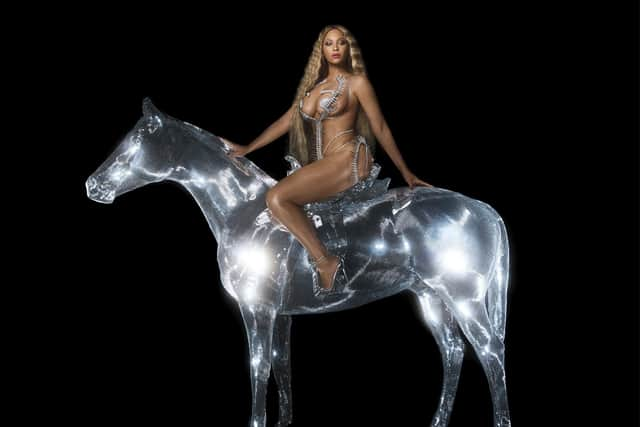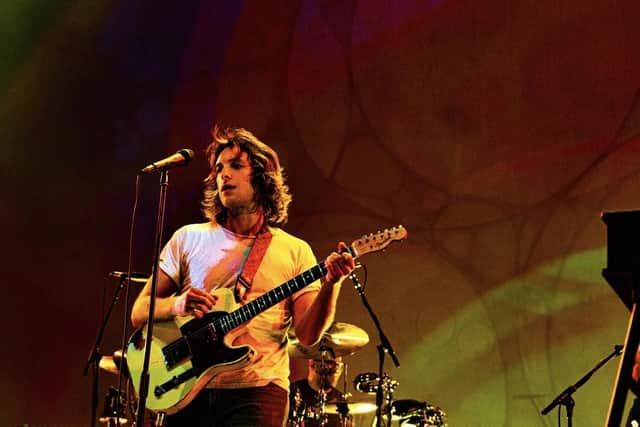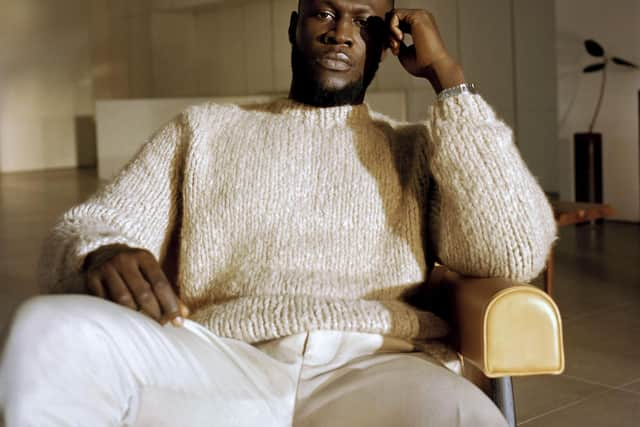Arts review of 2022: Fiona Shepherd on the year in pop
Following two grim years of lockdowns, limited gatherings and remote gigging, things could only get better in 2022, right? As the new year dawned, concert promoters were predicting that live music would come roaring back after the privations of the pandemic, with many adopting an “if you book it, they will come” approach to events. According to more cautious commentators, you might as well have bet on Kate Bush returning to the top of the charts or the UK performing well at the Eurovision Song Contest...
As the musical year gradually geared up, a mixed picture emerged, characterised by relief and rebuilding. Big tours were still being postponed because of Covid breakouts or in hopes of better times ahead. Celtic Connections, traditionally the first big hoolie of the year, was initially stymied by the post-Christmas lockdown but returned in relatively recognisable form.
Advertisement
Hide AdAdvertisement
Hide AdThe sheer number of festivals and outdoor gigs to choose from over the summer belied the big picture. Established crowd-pullers did the business but some exciting new prospects fell at the first hurdle including the Colourboxx pop festival in Glasgow, a laudable attempt to present a festival which didn’t fall back on the usual rock suspects.


Instead, the summer was stuffed with the same old stadium jobs for the boys – Ed Sheeran, Liam Gallagher, Coldplay and Gerry Cinnamon all pulled substantial crowds to Hampden Park, while The Eagles landed at Murrayfield. The Big Top at Ingliston and Dundee Summer Sessions at Slessor Gardens were new ventures with old faces – Snow Patrol, Stereophonics, Madness, Noel Gallagher… stop me if you’ve heard this one before.
At least Harry Styles brought a flash of flamboyant style to Ibrox Stadium, generating fan hysteria well beyond his talents. The onetime One Directioner was a reasonably fresh addition to the sure thing brigade as big event promoters exhibited scant appetite to take a chance on their line-ups, and pre-pandemic efforts to achieve a finer gender balance on festival bills seemed like a distant aspiration.
At least the summer festival scene was geographically diverse, with new additions such as the Eden festival in Dumfries and Galloway, Otherlands in Perthshire and Out East in Midlothian taking their places alongside more established boutique affairs from Butefest to Belladrum, and one-off gigs by The Killers at Falkirk Stadium, Duran Duran at Caledonian Stadium in Inverness, and Tears for Fears and Michael Buble at Floors Castle in Kelso.
Elsewhere, the Edinburgh Castle Concerts and Summer Nights at Glasgow’s Kelvingrove Bandstand were back in force, and it was like TRNSMT had never been away. The 2021 edition of Scotland’s largest music festival had been one of the first events to benefit from the end of social distancing; the 2022 line-up had an ace up its sleeve in the long-awaited comeback of Paolo Nutini, who released Last Night in the Bittersweet, his first album in eight years, the week before his headline slot. Clearly, his fans have kept faith – Nutini closed out the year playing a whopping five nights at the Hydro.


The Edinburgh Fringe also made a strong return showing with Summerhall curating an eclectic and imaginative line-up, trumped only by the Edinburgh International Festival’s Leith Theatre series of shows which took in the rapturous likes of hip-hop diva Princess Superstar, mesmeric Pakistani singer Aroof Aftab and Detroit techno legend Jeff Mills. Fans of alternative line-ups could take heart in the modest reboot of the Connect festival in its new home at the Royal Highland Centre, to which organisers are planning to return next year.
There were ample bread-and-butter arena shows across the rest of the year. Stormzy and Dua Lipa both went in all guns blazing. In contrast, Kendrick Lamar delivered a moody, theatrical hip-hop show like no other and Bob Dylan left fans wondering whether, at the age of 81, the end of the neverending tour might be in sight. Most surprisingly of all, U2 frontman Bono went solo on a moving and witty theatrical and musical odyssey inspired by his memoir Surrender.
Advertisement
Hide AdAdvertisement
Hide AdMeanwhile, the grassroots live scene across the country did the heavy lifting with venues from Sneaky Pete’s to the Green Hotel to The Glad Café continuing to serve their respective constituencies with dedication though a perfect storm of financial challenges. There has never been a more crucial time to support your local venue.
The return of live music was the novel side of the coin this year but there was no shortage of artists sending their pandemic recordings out into the world. Taylor Swift and Beyonce released albums to the usual breathless fanfare with marketing campaigns that threatened to overshadow the music. Jack White dispatched two albums and Dolly Parton co-wrote a book and a musical with comparatively little fuss.


Closer to home, there was pop joy at the spangly return of Altered Images and erstwhile Cocteau Twin Elizabeth Fraser’s first new music in 13 years as Sun’s Signature. Orcadian composer Erland Cooper wrote Music for Growing Flowers to soundtrack the Diamond Jubilee Superbloom display at the Tower of London, while back home in Orkney a local couple solved his treasure hunt to unearth the buried master tape – and only copy – of his latest album.
Meanwhile, those outsider bets came good – Kate Bush reached a whole new streaming audience when Running Up That Hill featured on the Stranger Things soundtrack and the irrepressible Sam Ryder achieved the UK’s best Eurovision result in a quarter of a century, coming second to Ukraine with his song Space Man.